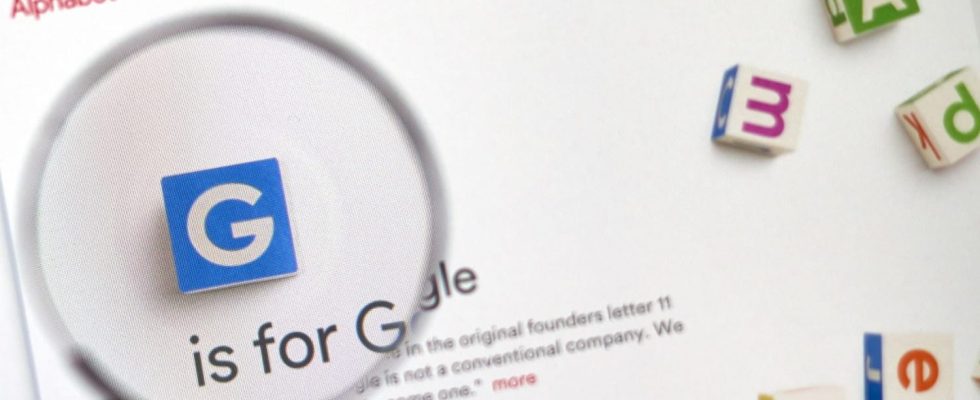To train its AI Bard, Google has discreetly changed its privacy rules for its services by granting itself the right to use all the content available on the Internet. Including all the information you post…
As we know, Google collects an astronomical amount of personal data when we use its services – even if we don’t realize how much. This data allows it to offer more personalized and better quality browsing and results, but also, and above all, to garner significant revenue, particularly from advertisers. However, with the explosion of AI and the need to train the most powerful language model to power it, Google may well have its eyes bigger than its stomach when it comes to collection. This weekend, the Mountain View company made a subtle and discreet change to its American privacy policy. As spotted TechPower, it intends to use its dominant position on the Internet to feed its AIs with ever more public content. And this time, it could well take the liberty of extending its scope to the entire Web in order to win its race for artificial intelligence. And so much for our privacy!
Google: a small change that leads to a big one
Until this weekend, Google stated in its US privacy policy that publicly available data would be used for business, research, and to improve Google Translate. However, we can now read that the company “uses information to improve its services and to develop new products, features and technologies for the benefit of its users and the general public. For example, we use publicly available information to train Google’s AI models and create products and features such as Google Translate, Bard and Cloud AI capabilities.” Inevitably, such a modification raises questions. What does she mean by “publicly available information” ? A little further, the Mountain View firm explains that “We may collect information available online or from other public sources”. Here is a wording that is ambiguous to say the least! Does it talk about the information we provide on these services, such as comments on YouTube or reviews left on Google Maps and Play Store apps? Or does it grant itself a right of scrutiny over the public Web in its entirety?
This change is applied since July 1 and, for the moment, only in the United States. On the French page of Google, no mention of these changes, even if there were indeed modifications on this date. We can tell ourselves that it is only temporary, the EUnited States often serving as a “test” place for all the company’s new products, but it is also possible that European laws are too restrictive for Google, in particular with the GDPR and the IA Act, which is in the process of being writing (see our article). Remember that his IA Bard is not available on the Old Continent, even if it is possible to use a VPN to access it.
Google: problematic data management opacity
In itself, all artificial intelligences, whether ChatGPT or Bing Chat, have probably been trained from public data available on the Internet. But this is the first time that a company – and not just any company – indicates directly – or almost – the source of this data. A dangerous game from a legal point of view, knowing that many artists consider that their copyrights have been infringed – generative AI is using their work to produce content – and that the legislation is being s adapt to the emergence of this technology.
This is not the first time that the digital giant has attracted attention for its murky policies. In a statement published on July 4, the Directorate General for Competition, Consumer Affairs and Fraud Prevention (DGCCRF) indicates that Google will have to pay a nice fine of 2 million euros for not having respected the French consumer code. Indeed, it notes, for three types of services, a lack of“clear, honest and transparent information” for its users.
The DGCCRF imposes an administrative fine of 2.015 million euros against the company Google Ireland Ltd, for non-compliance with the regulations applicable to operators of digital platforms in terms of consumer information
https://t.co/lwmUkdXJks pic.twitter.com/rSbbUf0la6— DGCCRF (@dgccrf) July 4, 2023
Thus, Google Search does not indicate explicitly enough what are the criteria for ranking results when an Internet user makes a request. It also lacks essential information for him to make an informed choice when comparing tourist accommodation offers – for example, the service does not indicate whether the offer is cancellable and refundable, or whether breakfast is included in the displayed price. Finally, the Play Store “forgets” to indicate the criteria for ranking the results, the quality of the company offering a service – is it a professional or an individual? –, the terms of payment and the rules for settling disputes. In addition, users do not have a reason for refusal when the publication of one of their opinions is refused. Since the investigation, Google has fixed some issues, but not all.
